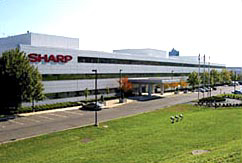Sharp Appeals TTAB's "THINKSHARP" 2(d) Dismissal
Sharp Corporation has filed an appeal (CAFC Appeal No. 05-1220, docketed February 11, 2005) from the TTAB's decision dismissing its opposition to registration of the mark THINKSHARP for educational computer software, videocassette tapes, and CD-ROMS, and for educational services in the field of problem solving and critical analysis. Sharp relied on use and registration of the mark SHARP for a wide range of electrical and electronic products (including computers, videotape players, and CD-ROM players), in claiming both likelihood of confusion and dilution. Sharp Kabushiki Kaisha v. ThinkSharp, Inc., Opposition No. 91118745 (March 31, 2004) [not citable].

The Board swiftly discarded Sharp's dilution claim because it was insufficiently pleaded: Sharp failed to allege that its marks became famous prior to ThinkSharp, Inc.'s use of its mark. Moreover, although Sharp made several references to dilution in its brief, the issue was not tried by express or implied consent of the parties, and in any case, Sharp did not prove its claim.
Turning to the Section 2(d) issue, Sharp contended that it owns a "family" of SHARP marks (including SHARPVISION, SHARP CORPORATION, and BE SHARP), but once again the Board found the proofs wanting: "the mere fact that opposer uses marks that consist of or include SHARP does not in itself prove that a family of marks exists."
Based on Sharp's many years of use, substantial sales ($3B annually), and extensive advertising ($60M annually), the Board found that the fame of the SHARP mark entitled it to "a broad scope of protection against competing marks." Nonetheless, the Board concluded that SHARP and THINKSHARP "are not similar in appearance, pronunciation, connotation or commercial impression." Moreover, "opposer's goods are not commercially related to the goods and services set forth in applicant's application such that" confusion would be likely.
As to ThinkSharp's goods:
"[s]imply because [they] may be used in opposer's goods is not a sufficient basis to find that the goods are related. Opposers goods are hardware, while applicant's goods are bought for the content contained in the physical object."
ThinkSharp's application limited the offering of its services to classroom instruction, the Internet, and satellite transmission. The Board found that:
"the only overlapping trade channel for opposer's goods and applicant's services is the Internet. However, inasmuch as thousands of goods and services are offered through the Internet, the mere fact that both opposer's goods and applicant's services are offered through the Internet to ordinary consumers is certainly not a basis to find that they are related within the meaning of the Trademark Act."
Therefore, the Board concluded that confusion is not likely, and it dismissed the opposition.

Sharp also attempted to raise the issue of res judicata (claim preclusion), pointing out that it had opposed ThinkSharp's simultaneously-filed application to register the design mark shown below for the identical goods and services as in this case. ThinkSharp did not file an answer, and judgment by default was entered. The Board first ruled that Sharp had waived this issue by failing to raise it until final briefing.

Considering, then, the merits of the res judicata claim, the Board distinguished the precedent relied upon by Sharp, wherein an applicant had adopted an insignificantly different mark after judgment had been entered on its first mark:
"Applicant did not file its application to register the mark THINKSHARP in typed drawing form merely as an attempt to evade the preclusive effect of the judgment entered against it in the application to register THINKSHARP and design. Applicant was entitled to pursue the registration of only one of its marks, rather than defending the two oppositions."
From this author's viewpoint, ThinkSharp probably dropped its design application because it thought its chances of success were better with the compound word mark. In the design mark, the word "Sharp" is separated from the word "Think," and that separation might give Opposer Sharp a better argument regarding the similarity of the marks at issue. To me, that seems like sharp thinking on the part of ThinkSharp.
Text ©John L. Welch 2005. All Rights Reserved.




0 Comments:
Post a Comment
<< Home